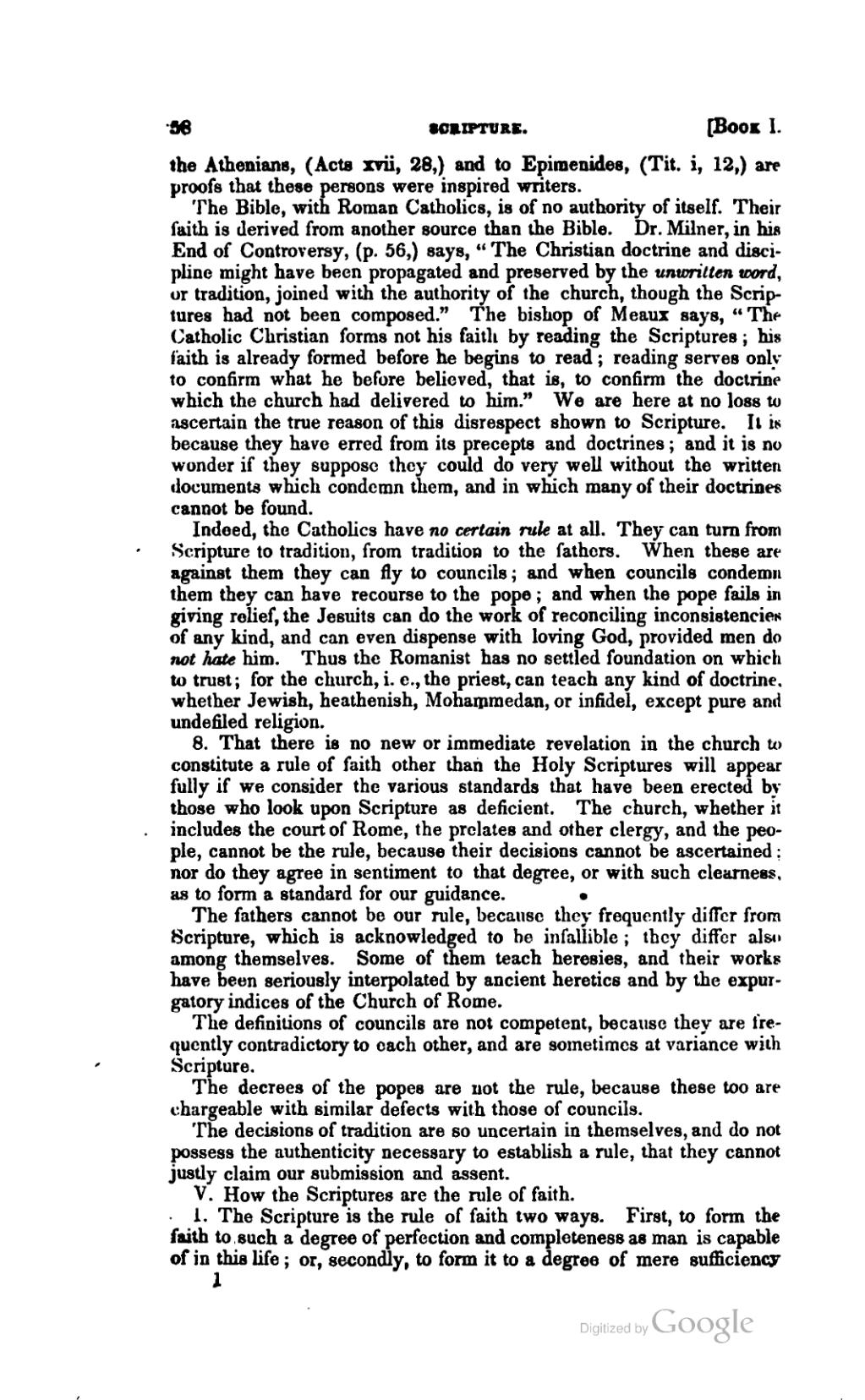the Athenians, (Acts xvii, 28,) and to Epimen/des, (Tit. i, 1:2,) are pr,o?.fs that these persons were inspired writers. �he Bible, with Roman Catholics, is of no authority of itself'. Their faith is derived from another source than the Bible. Dr. Milner, in his End of Controversy, (p. 56,) says, "The Christian doctrine and disci- pline might have been propagated and preserved by the unwr/ttm word, or traditiou, joined with the authority of the church, though the Scrip- tures had not beeu composed." The bishop of Meaux says, "The Gatholic Christian forms not his faith by reading the Scriptures; his Ikith is already formed before he begins to read; reading serves only to confirm what he before believed, that is, to confirm the doctrine which the church had delivered to him." We are here at no loss to ?certain the true reason of this disrespect shown to Scripture. It is because they have erred from its precepts and doctrines; and it is no wonder if they suppose they could do very well without the writtea documents which condemn them, and in which many of their doctrines cannot be found. Indeed, the Catholics have no certain rule at all. They can turn from Scripture to tradition, from tradition to the fathers. When these are against them they can ?y to councils; and when councils condemu them they can have recourse to the pope; and when the pope fails hu giving relief, the Jesuits can do the work of reconciling inconsistencie? of any kind, and can even dispense with loving God, provided men do not ]u? him. Thus the Romanist has no settled foundation on which to trust; for the church, i.e., the priest, can teach any kind of doctrine. whether Jewish, heathenish, Mohmpmedan, or infidel, except pure and undefiled religion. 8. That there is no new or immediate revelation in the church to constitute a rule of faith other than the Holy Scriptures will appear fully if we consider the various standards that have been erected by those who look upon Scripture as deficient. The church, whether i? includes the court of Rome, the prelates and other clergy, and the peo- ple, cannot be the rule, because their decisions cannot be ascertained; nor do they agree in sentiment to that degree, or with such clearness, as to form a standard for our guidance. � The fathers cannot be our rule, because they frequently dilTcr from Scripture, which is acknowledged to be infallible; they differ sis- among themselves. Some of them teach herestes, and their works have been seriously interpolated by ancient heretics and by the expm- gatory indices of the Church of Rome. The definitions of councils are not competent, because they are IYe- quently contradictory to each other, and are sometimes at variance with Scripture. The decrees of the popes are not the rule, because these too are chargeable with similar defects with those of councils. The decisions of tradition are so uncertain in themselves, and do not possess the authenticity necessary to establish a rule, that they cannot justly claim our submission and assent. �. How the Scriptures are the rule of faith. 1. The Scripture is the rule of faith two ways. First, to form the faith to.such a degree of perfection and completeness as man is capable of in this life; or, secondly, to form it to a degree of mere sufficiency
�
